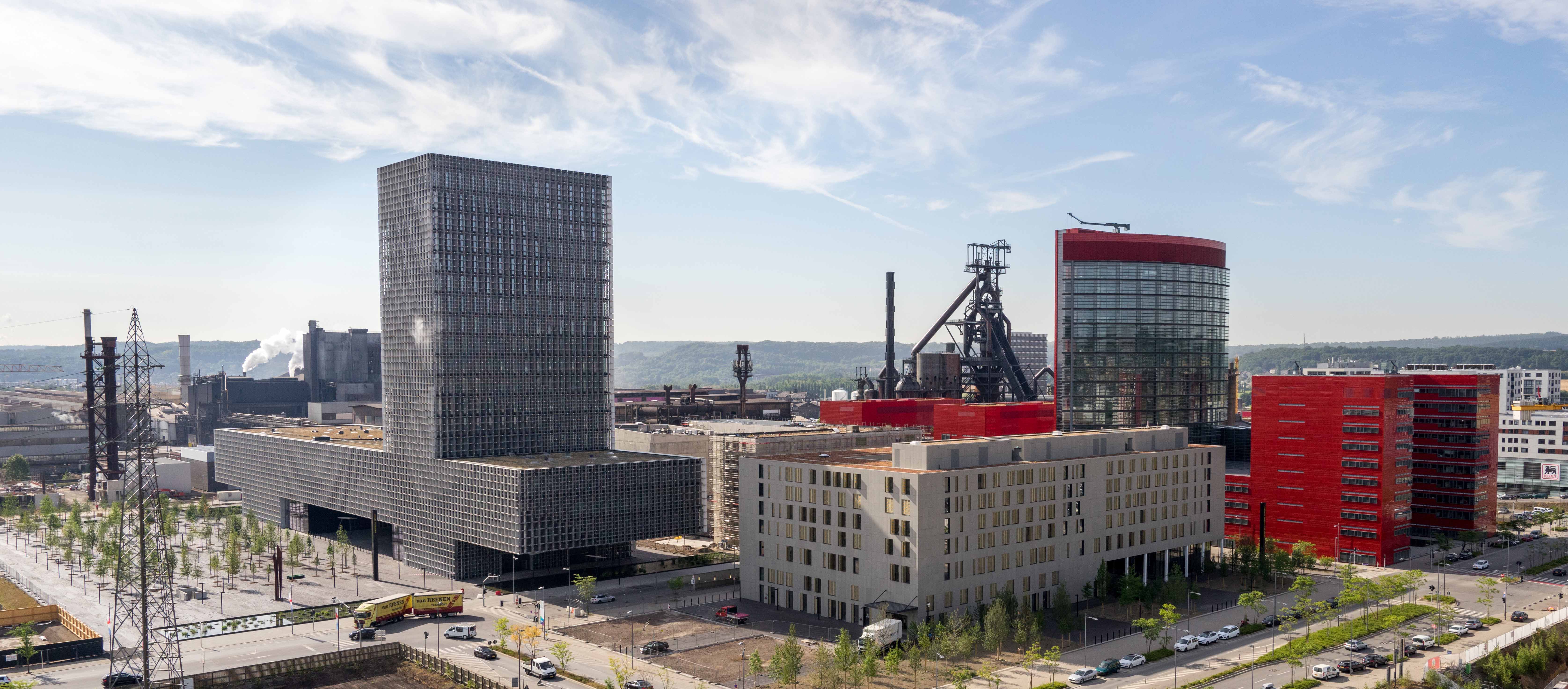Migration and Inclusive Societies (MIS) conducts a wide range of research in the fields of humanities, behavioural sciences, education and social work, social sciences, geography, and architecture to understand change and to contribute to open and resilient societies. Migration Studies at the FHSE are organised in the Key Research Area “Migration and Inclusive Societies” (MIS) and look at representations of migration in culture, history and literature.
MIS conducts inter- and cross-disciplinary teaching, outreach, and research with a focus on key issues such as migration and identity, multilingualism, education with respect to health and behaviour, social inequalities, and sustainable development to promote inclusive societies. By fostering disciplinary and methodological diversity, MIS engages with the complexity of migration processes and of inclusion.
Luxembourg is a multilingual and multi-nationally society whose prosperity is rooted in cultural exchange1. Its demographic profile can in fact be described as “superdiverse”.2 Cross-border exchanges and migration have always played a critical role in Luxembourgish society and economy.3 Immigration intensified in particular over the past four decades and today, 48% of Luxembourg’s inhabitants are non-nationals.4 Luxembourg’s outer borders were determined in the Treaty of London in 1839; today, more cross-border workers enter Luxembourg from Belgium, France and Germany on a single working day than the entire population of Luxembourg at that time.5 It is no coincidence that the treaty abolishing internal border checks within several European countries was signed in Schengen, Luxembourg, and now carries the name of this small town where three countries meet.
Luxembourg’s unique migratory situation underlines the need to better understand the dynamics of borders, how and why people move, and what the mechanisms and preconditions of successful inclusion are. This is important as the costs of failing inclusion in societies are high (e.g. school dropout rates, youth unemployment, rise in nationalist ideologies, weakening social cohesion, alienation, health issues…).
Migration and Inclusion
Understanding migration of people requires the combined effort of multiple disciplines by connecting it to other forms of cross-border movements. For example, the worldwide movement of cultural, social or economic stereotypes, narratives and images through media and the establishment of border-crossing communicative networks do not only often motivate migration in the first place, but also predetermine to a large extend the ways in which societies accommodate migrants. In addition to this, migration of people is often related to border-crossing movements of a more symbolic kind: the transgression of boundaries of what is (thus far) permitted and conventional, or the demand for access to cultural resources from elsewhere, including political ideas and new notions of society. Processes of movement can drive continuous transformations of existing forms of knowledge and practice regardless of whether this relates to people, discourses, texts, linguistic structures or works of art.
Migration Studies at the FHSE also encompass research on inclusion, which is meant to designate the principle of accessibility of societal structures for people, not implying any specific notion of social cohesion. Inclusion in this sense comprises economic, political, educational, social, and cultural aspects. This is why the focus on inclusive societies has the potential to foster collaboration of multiple disciplines.
At MIS, we cover migration-related research with five working areas:
- global connectivity and socio-economic participation,
- diversity and social cohesion,
- cross-border movement and citizenship,
- multilingualism and educational challenges,
- border experiences and cultural identities.
Each of these working areas combines a focus on a phenomenon linked to migration processes with a focus on a particular aspect of inclusion. Each of these combinations addresses questions that are of interest to several disciplines, thereby creating a space for interdisciplinary cooperation. Transversal forms of collaboration (in the form of regular workshops, conferences, etc.) will further support trans- and interdisciplinary research (e.g., the meaning of cross-border movement for cultural identities).
MIS focuses on the processes of migration themselves, on the complexities of borders and the dynamics of arrival as the mechanisms and drivers of inclusive societies. Topics studied include cross-border migration and mobility, interculturality, migration in/of literature and languages, (European) identity, human rights and other legal aspects of migration, particularly on the European level, health issues related to migration, the history of migration, current topics such as refugees, forced migration, trans-regional dynamics of migration, and Luxembourg’s particular situation as a (European and international) testbed for societal and economic processes. One of our strengths is our research on multilingualism, focus on language acquisition and language development in multilingual settings as well as multilingualism in school, society, higher education and the work place.
Projects
Migration- and border-studies at the FHSE have been highly successful at carrying out numerous national and international research projects, establishing research structures and winning competitive grants, for instance from the FNR, Erasmus, Interreg, H2020 (e.g. one ERC starting grant), the European Commission (e.g. Asylum, Migration and Integration Fund), the Swiss Science Foundation and the Government of Luxembourg.6
In addition, FHSE hosts the Center for Border Studies, a thematic cross-border network of researchers within the university cooperation network within the Greater Region, and Luxembourg’s National Contact Points of the EU funded European Migration Network (EMN), European Union Agency for Fundamental Rights (FRA), and of the European Spatial Planning Observation Network (ESPON).
Activities and events
MIS organises and/or supports both research and teaching/outreach activities, such as the 2019, RISC-Conference in Johannesburg and the IMISCOE 2020 conference, which will take place at the University of Luxembourg in June/July of 2020.
Notes
- http://luxembourg.public.lu/de/le-grand-duche-se-presente/population/index.html
- Vertovec, 2007
- http://www.bpb.de/gesellschaft/migration/laenderprofile/209264/historische-entwicklung
- Statec, 2017
- http://luxembourg.public.lu/de/le-grand-duche-se-presente/population/index.html
- e.g.: Conf. ABS Europe 2016, H2020 – CEASEVAL, H2020 – MOVE, H2020 – RELOCAL, Rédact-finalisation rapport SOPEMI, The situation of cross-border workers in Switzerland, FEDER - Border Studies.

